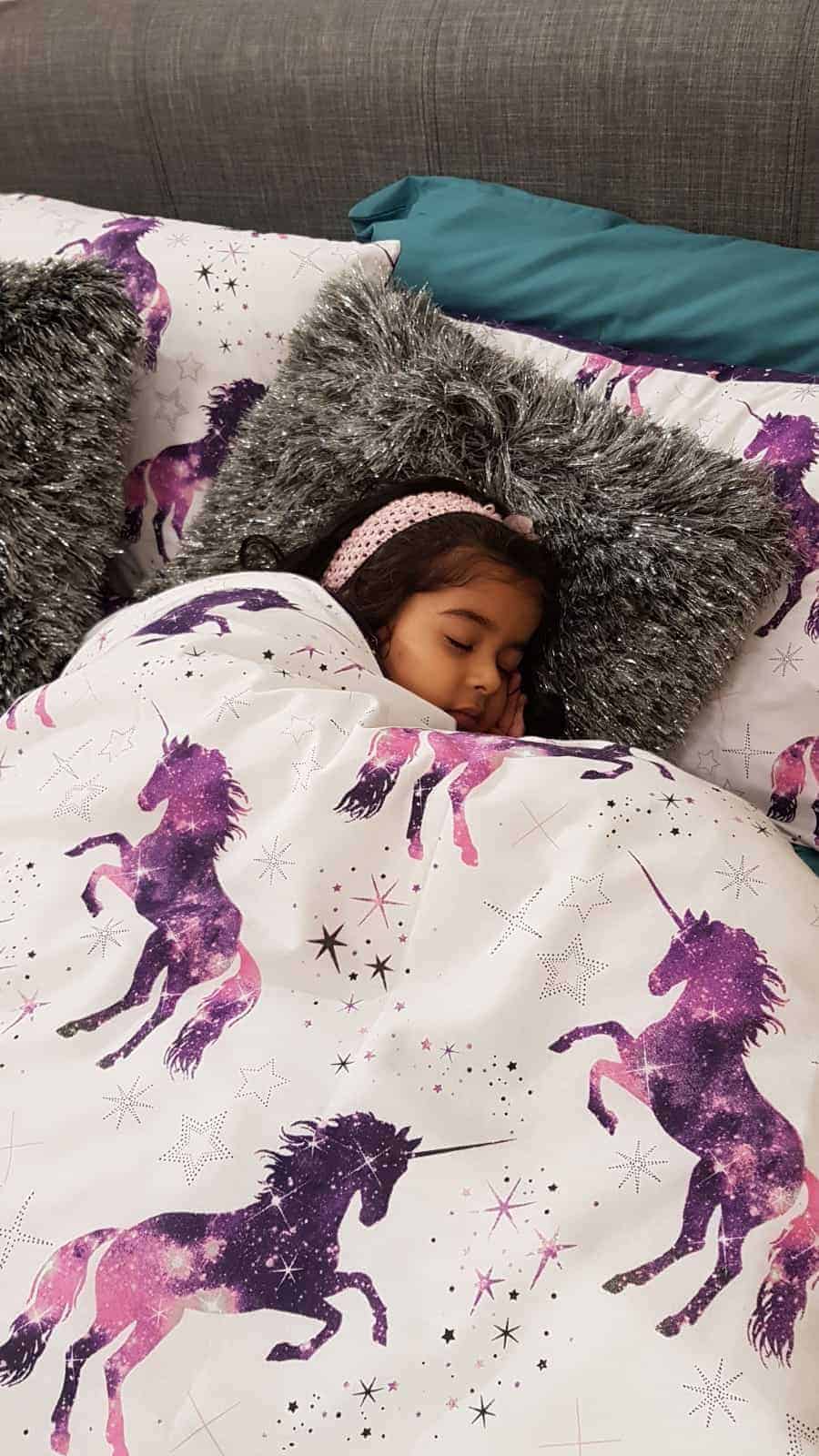What exactly is Bedtime Anxiety?
Just what it says! Except for us as parents we see it as our kids just not listening to us or not doing what they are told. If we listen in a little more closely our children are trying to communicate with us. What is it they are trying to say?
Firstly let’s look at anxiety.
‘’Anxiety is defined as a feeling of being nervous or worried, often as a result of fear of a possible future event’’.
Anxiety is different in adults and in children. It can be normal in children and they usually grow out of it. Some may grow up with character traits such as being shy, more introvert, nervous in social situations or just generally quiet and that doesn’t always mean they are anxious! We know it varies from child to child and can take many forms. It can occur naturally, triggered by external events or there maybe a family history or a genetic link. Genetic Link’s are not proven but if there is a history of mental health there is a higher risk for children.
Separation anxiety can start at 8 months old and has peaks throughout the toddler and pre school years. Then there are various life events that can cause anxiety to trigger; starting school, moving house, exams, peer pressure and so on.
Children who are anxious are very good at hiding it; acting out in certain ways that doesn’t display anxiety, not communicating their feelings, shutting down, being angry, tantrums in older children and sometimes clingy behaviour. Sometimes for us parents we see this is disobedience and that our child is just being naughty or not listening. It’s times like these that things like time out steps may not be the best approach.
Now let’s talk about sleep! It’s completely normal for babies and children to want us to be with them when they go to sleep but what is the reality that we are able to sit with them whilst they fall asleep every single day for the next 6 to 7 odd years? It’s hard to hide anxiety at bedtime and it shows up
In different ways; delaying bedtime, wanting an extra story, asking for the toilet repeatedly, procrastinating, using play to distract from sleep, frequent night wakings. Some of the biggest realisations for me were 2 things; my eldest daughter, Debyani, always having a belly ache at bedtime and she is afraid of the dark.
Anxiety is bidirectional so an anxious child will find it hard to fall sleep. The best way your body can deal with anxiety is to rest and sleep. So a vicious cycle starts; the mind won’t switch off because they are anxious, they can’t get to sleep and then there mind is overtired and that increases anxiety. An anxious brain is an active brain. ‘’Need to sleep and can’t sleep’’. This is when bedtimes get extended which is called ‘’Sleep Latency’’.
Children generally take 15 – 20 mins to fall asleep which is normal. Sleep issues arise when this becomes extended. Quality of sleep is also affected because the deep, restorative and restful sleep that we have is compromised; where all our learning consolidation, development and healing happens. So instead what happens is more of the lighter REM sleep which is why children wake more at night. They can be tired, grumpy or act out during the day. This can be extremely difficult with school and nursery where they become even more tired. Towards the end of the day meltdowns can occur and bedtime battles!!
What we need to do is find the root cause, find ways to ease our children through it and talk to them about it.
Daytime
Start during the day preparing our children. So when bedtime comes they are in a calm way
Get enough sunlight in the day (This is for us and all children!). When sunlight enters our retina it produces Serotonin. In the dark serotonin is converted into the sleep hormone Melatonin. So if we do not have enough serotonin in the day it can become difficult to produce melatonin. Aim for 30 minutes a day. Getting out will also make them physically tired which is a good thing! You can get light boxes or lamps if there isn’t a lot of sun where you are
Create a calm corner in the play area or living room where they can sit for 15 mins before bed. This is also good for calming tantrums and emotions. You can stick 4 choices up on the wall in the calm corner and anytime our child feels angry or upset they can go to the corner and choose how they would like to calm down.
Have a set time during the evening to talk to your children about their day, how was nursery/school, did anything in particular happen, is there something they would like to talk about? One of the things I have started doing with Debyani is we both name 2 things that made us happy today and 2 things that we are grateful for. It helps us connect and see the positive. It also opens up dialogue if something has happened and that helps expose her anxieties.
Bedtime
Keep bedtime calm and gentle. Have a predictable and short bedtime routine that is the same every night. Children do really well with predictability. This creates consistency and boundaries.
Tune into your child’s bedroom environment. Keep the environment simple, minimal and de cluttered. Do they have a comforter? Are there too many pillows or teddys in their bed? Do they have a favorite duvet cover? Do they have any nice gentle trinkets or ornaments hanging around the room to create a calm atmosphere? If they are older you can ask them what they would like to nearby to make them feel better.
Talk to your child. Explore feelings around bedtime, open up a space for them to communicate with you, to discuss fears and label and acknowledge anxiety. Acknowledge delays, procrastination and latency with them. So you can say things like ‘’I know it takes a while for you to fall asleep, is there something wrong or is there something you need? How can I help you at bedtime?’’
Bedroom Lighting: Melatonin is produced in the dark. The difficulty is that anxious children struggle with the dark for many reasons. So for this we can introduce Red Light. Red Light is the only light that doesn’t affect this process. If you look at a red light then close your eyes you will see darkness but any other light you will see bright!
See things from your child’s point of view. If they are scared of something treat it like it is real because for them it is. If they are scared of a shadow or a monster acknowledge it and say things like show me where it is, get down on their level and move things if need be. Ask them what they need? They will feel in control and reassured. For them it’s a solution and you have taken some pressure off from them – avoid saying things like don’t be silly, get down on their level on your hands and knees.
Feel/Be strong yourself around bedtimes – use a mantra, wind down before school runs, try and remain calm and grounded so you can hold a space for them and be an example for them. They will pick up on your energy.
Avoid giving them instructions like ‘’Go to sleep’’. It’s difficult for an anxious child to go to sleep. Instructions like this can make them more anxious and pressured. We know and they know that they have to go to sleep!
Bedtime Strategies
Pop Outs: Settle your child to sleep and after a few minutes say ‘’ahh gosh I forgot to turn off washing machine, I am just going to pop and do that and I will be back’’. You go out and you wait a minute and go back in. Always always go back in. The aim is over a period of a few weeks the time you are out increases. The aim is for your child to feel confident that you are actually coming back. Give a valid reason so their anxiety doesn’t increase.
Kissing Game: Instead of talking about any jobs that you have say ‘’I am just going to come back in and give you a kiss in 2 mins’’. Again make sure you come back and increase the time that you are out.
Room Pass: Make 20 passes. These can be used for older children who roam around the house delaying bedtime, in and out of your bedroom, the living room etc. Give your child the 20 passes and tell them that they can use these passes to come out of the bedroom but when they are gone they are gone. So each time they come out of their room they use one pass. When they wake up in the morning they will have lots of passes left. They can build their passes up and after a few weeks buy a toy or experience.
Make bedtime later: This is for children that are taking a long time to fall asleep because of anxiety. So if your child goes to bed at 7pm and isn’t falling asleep until 9pm it’s not helpful to keep going in and telling them to go to bed; it will increase their anxiety. Put them to bed at 8.45pm. Do that for a few days. Continue making bedtime 15 mins earlier every few days (8.30pm, 8.15pm, 8pm and so on). Over the few weeks you will reach your desired bedtime.
- Will all these strategies make sure when your little one wakes up in the morning that you always say to them ‘’Ah you fell asleep and when I came in for my little cuddle you were asleep’’. This will help build their confidence, reduce anxiety and is a tangible achievement for them.
Love Seema
xxx
Recommended Books:



0 Comments